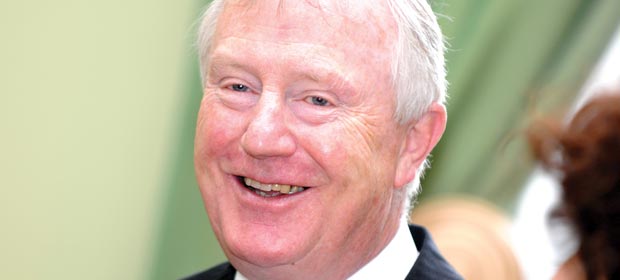Denis Doherty examines how Ireland can avoid achieving the status of becoming the most overweight people in Europe.

A forecast that Ireland is set to become number 1, in anything, in Europe by 2030, could be expected to generate a great deal of interest. However, when reaching number 1 would mean we achieve the status of being the most overweight people in Europe, that’s a totally different matter. So, we react, as we are prone to do, by not dealing with it and hoping it won’t happen. And anyway, didn’t the forecast recommend extreme caution in using the data? With a bit of luck we might not achieve a podium position and thereby avoid the ignominy the award ceremony would bring.
The challenge of avoiding the appalling vista of being confirmed the most overweight and obese nation in Europe won’t be achieved by the health services alone.
We have a history here, going back a long time, of ducking many of the big healthcare challenges. In 1968, before the health boards were set up, the Fitzgerald Report recommended how our hospitals network needed to be modernised. The implications for the future of County Hospitals, as they were known then, were ominous. The prospect of the recommendations in the ‘Fitzgerald Report’ being implemented appeared promising when Health Act, 1970 came into law and contained provision for three Regional Hospital Boards in Dublin, Cork and Galway. As soon as the political realisation dawned that these new bodies might actually take their task seriously and, God forbid, might even implement the recommendations in the ‘Fitzgerald Report”, they were promptly abolished. It now fell to health boards, a majority of whose members were County Councillors, to implement the Fitzgerald Report. County Councillors are very astute politicians who don’t have to be told what happens to turkeys that vote for Christmas. They didn’t settle for even a hospital in every constituency, they insisted on one in every county. History shows that approach has enjoyed all party support for nearly fifty years. Is it a coincidence that the hospitals that are in most difficulty now, in this era of greater scrutiny of standards, are the same hospitals that most political football has been played over for many years?
It may surprise many to learn that the problem of recruiting and retaining doctors here, at a time when young Irish doctors are emigrating in droves, is a crisis that has been waiting to happen for decades. In June 2003, the ‘Hanly Report’ dealing with medical staffing was published. It set out very clearly what needed to be done to enable Ireland to meet the European Working Time Directive by August 2009. It would have involved moving to a consultant led service, increasing the number of consultants and distinguishing between training posts and service posts. It also raised the spectre of ‘Fitzgerald.’ In response, wearing the county jersey was demanded of politicians and the game plan involved playing the man and not the ball. The chairman of a very fine report came in for a lot of unfair criticism. Not a lot has changed in the meantime. Ireland is not yet compliant with the European Working Time Directive, where hospital doctors are concerned, nearly six years after the deadline for doing so has passed. If the ‘Hanly Report’ had been implemented in a timely fashion might the scandals of recent years, attributed to medical staffing problems, have been avoided?
Drawing on the experience of ‘Fitzgerald’ and ‘Hanly’, what should we be doing now to avoid a podium position at the 2030 Obesity Championships for European Nations? It would help if greater use were made of evidence to support political decision-making. There are some good examples of that actually happening. The rationalistion of cancer services and the smoking ban, for example, spring to mind. On the other hand, the decisions to grant medical cards to all children under six and to all over seventies come into a different category. We’re fortunate to live in a parliamentary democracy and it is undeniably the prerogative of the government to decide how limited resources are invested. Is it reasonable, though, to expect that the common good should receive priority over party political or constituency considerations? The public health specialty can play an important role in assembling and presenting the evidence in support of political decisions that favor the common good, if politicians are interested in availing of their expert knowledge and advice. The challenge of avoiding the appalling vista of being confirmed the most overweight and obese nation in Europe won’t be achieved by the health services alone. In fact, the health services can perform little more than a minor role in that regard. The leadership of public health experts and the influencers of all sections of society is called for. On the other hand, if indifference and inertia leads us to the dreaded number one position, our health services may well be overwhelmed by the health consequences of being the leading overweight and obese nation in Europe.

